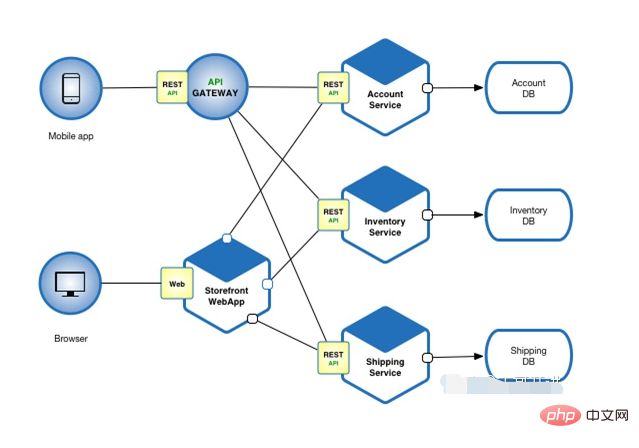Home >Common Problem >What does servitization mean?
What does servitization mean?
- hzcOriginal
- 2020-06-29 13:39:3313041browse
Serviceization refers to a method of abstracting various businesses in a large system and developing and managing them in units of services. Related to this is service-oriented architecture.

#What is servitization? Let’s talk about service-oriented architecture and microservices
The so-called servitization refers to the method of abstracting each business in a large system and developing and managing it in units of services. Associated with it is service-oriented architecture.
Service-oriented architecture (SOA) is a software design style whose concept is to realize the requirements of a system through service components.
Each SOA service is an independent functional unit and can be executed independently.
Attributes
An SOA service has four attributes:
Logically represents a business with specific results Activity.
is self-contained.
It is a black box for consumers, and consumers do not need to know the inner workings of the service.
may be composed of other basic services.
Microservices are a modern interpretation of service-oriented architecture and are used to build distributed software systems.
The services in the microservice architecture achieve a functional goal through network communication.
Microservices help encapsulate language and framework choices.
Generally speaking, microservices have the following characteristics:
Independently deployable services;
Business-driven development (For example: domain-driven design);
Cloud application architecture;
Diversified programming and persistence;
Lightweight container deployment;
Distributed continuous delivery;
DevOps and overall service monitoring;

The above is the detailed content of What does servitization mean?. For more information, please follow other related articles on the PHP Chinese website!

